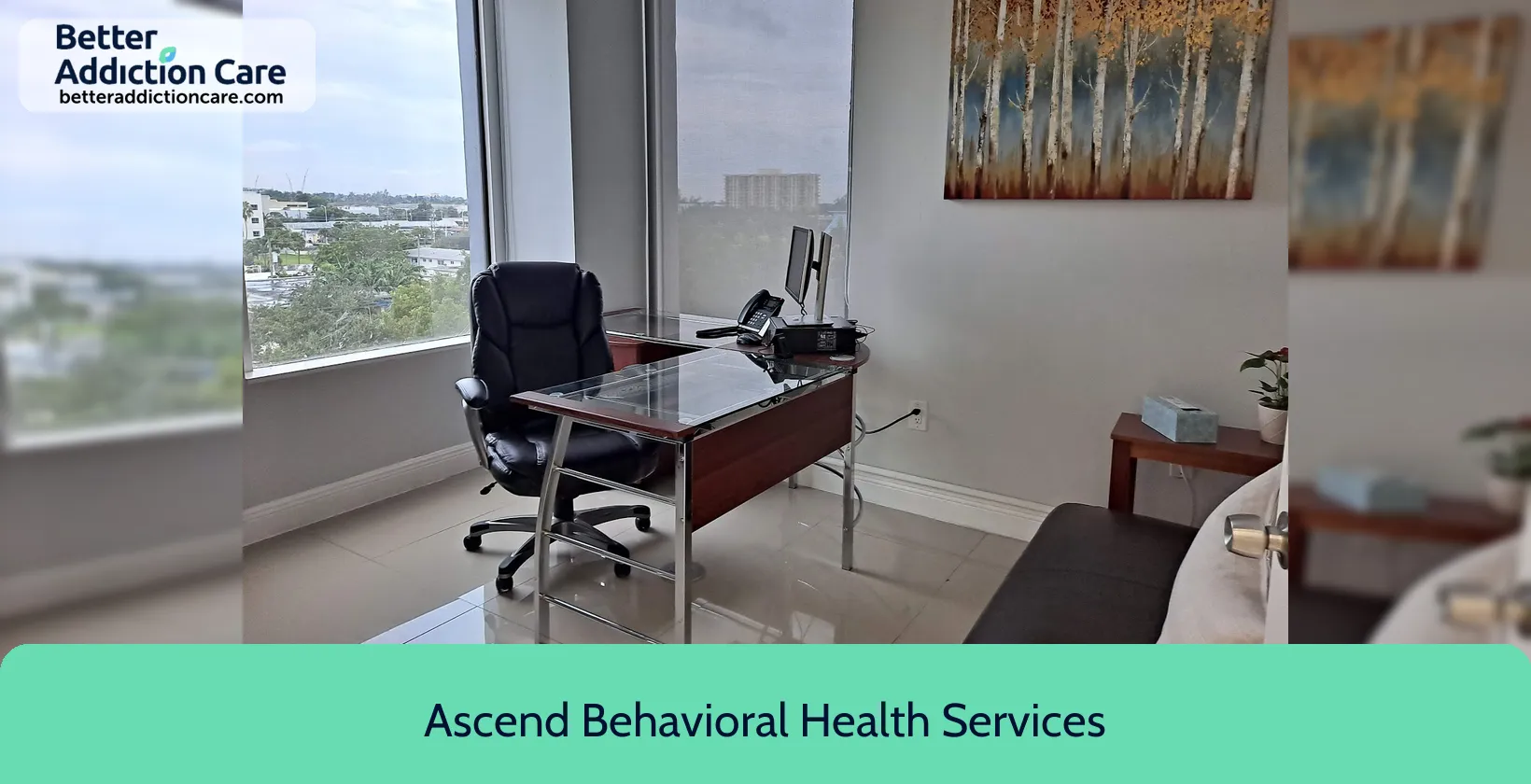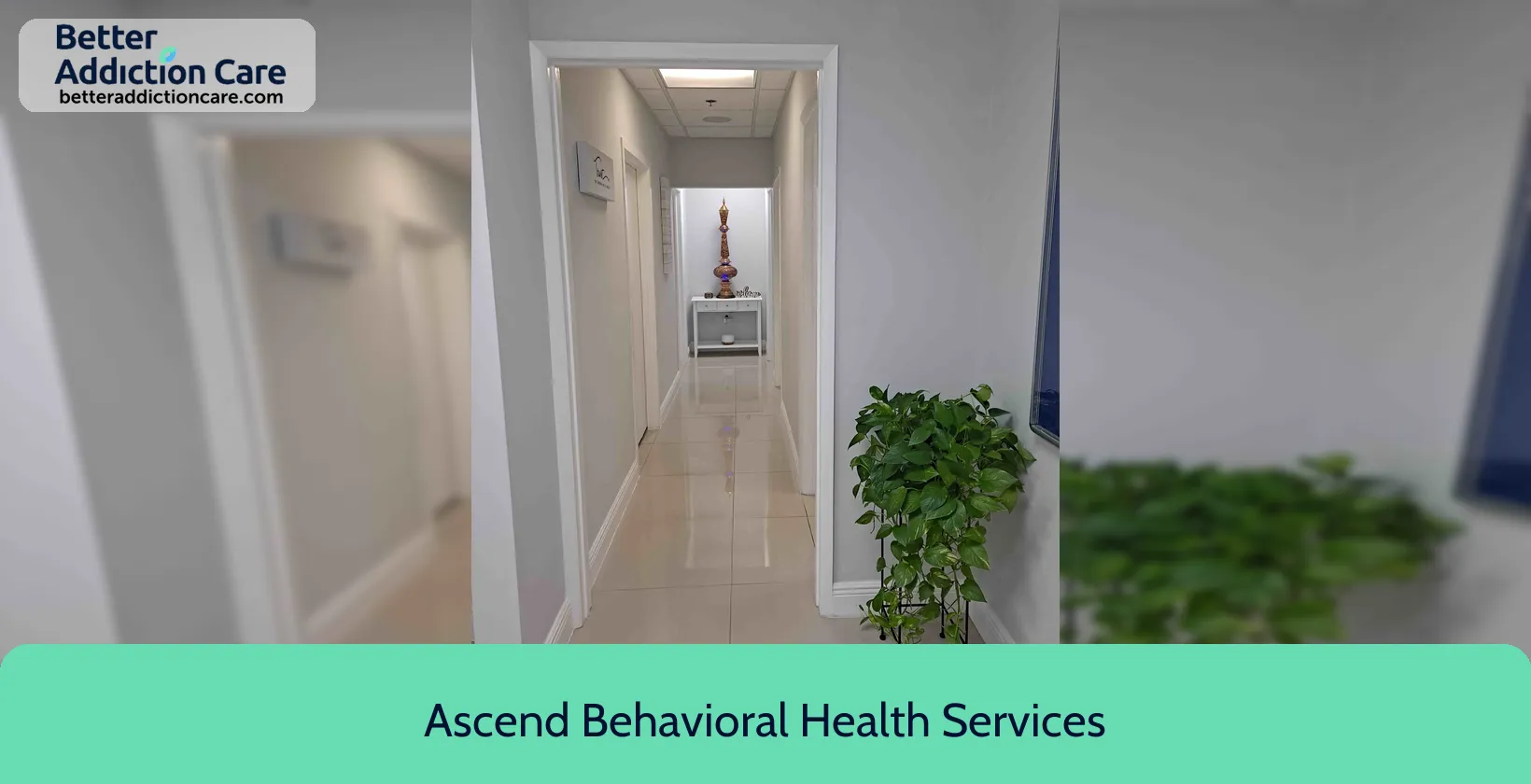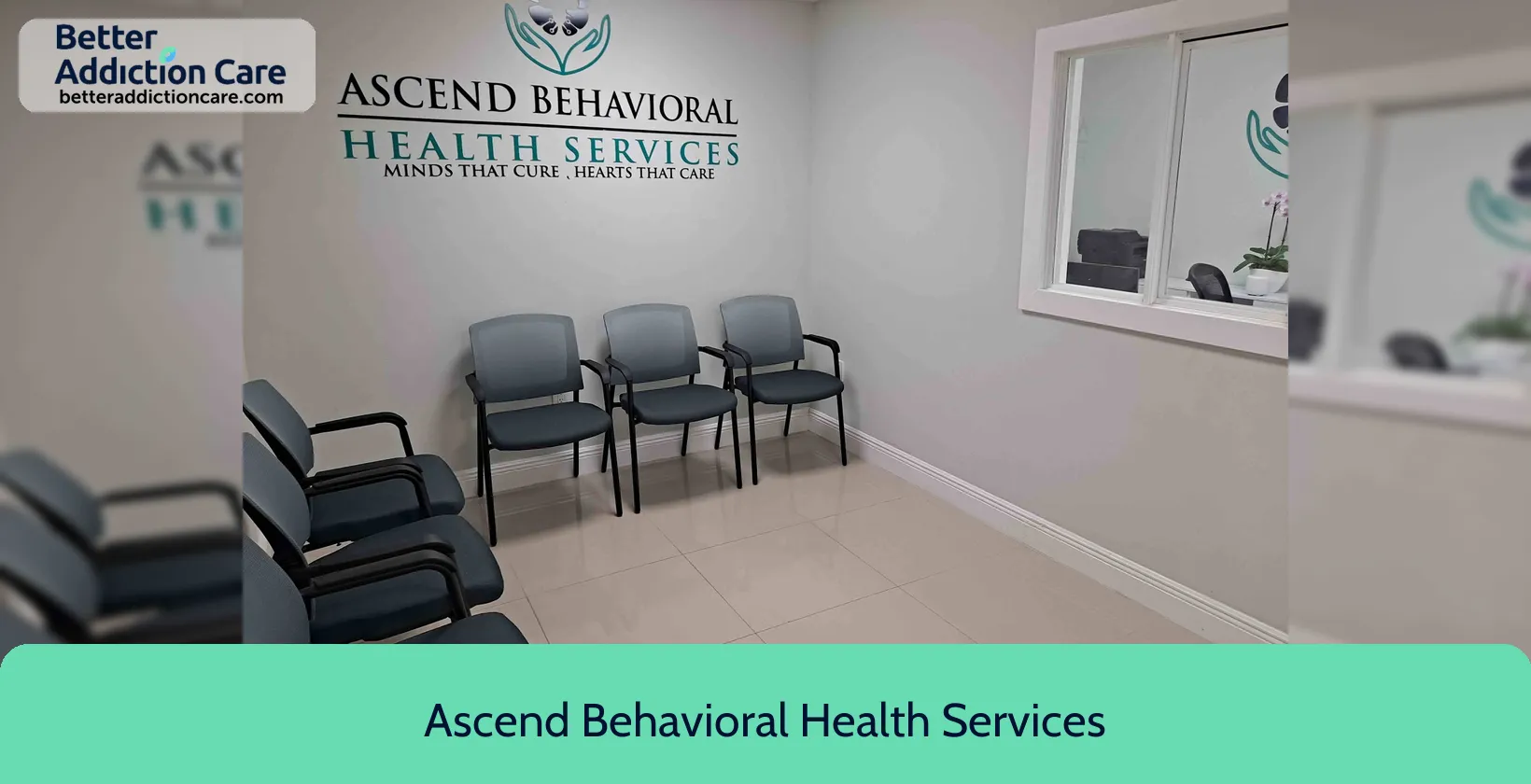Ascend Behavioral Health Services
Overview
Ascend Behavioral Health Services is a mental health treatment center for people seeking treatment near Miami-Dade County. As part of their treatment modalities for recovery, Ascend Behavioral Health Services provides couples/family therapy, group counseling, and cognitive behavioral therapy during treatment. Ascend Behavioral Health Services is located in Miami, Florida, accepting cash or self-payment for treatment.
Ascend Behavioral Health Services at a Glance
Payment Options
- Cash or self-payment
- Medicaid
- Medicare
- Private health insurance
- Federal military insurance (e.g., TRICARE)
Assessments
- Screening for tobacco use
- Comprehensive mental health assessment
- Comprehensive substance use assessment
Age Groups
- Seniors or older adults
- Young adults
- Children/adolescents
- Adults
- Seniors
Ancillary Services
- Diet and exercise counseling
Highlights About Ascend Behavioral Health Services
6.68/10
With an overall rating of 6.68/10, this facility has following balanced range of services. Alcohol Rehabilitation: 8.00/10, Drug Rehab and Detox: 6.00/10, Insurance and Payments: 6.00/10, Treatment Options: 6.73/10.-
Alcohol Rehabilitation 8.00
-
Treatment Options 6.73
-
Drug Rehab and Detox 6.00
-
Insurance and Payments 6.00
Treatment At Ascend Behavioral Health Services
Treatment Conditions
- Mental health treatment
- Substance use treatment
- Co-occurring Disorders
Care Levels
- Outpatient
Treatment Modalities
- Couples/family therapy
- Group counseling
- Cognitive behavioral therapy
- Integrated Mental and Substance Use Disorder treatment
- Telemedicine/telehealth therapy
Ancillary Services
Languages
- Spanish
Additional Services
- Pharmacotherapies administered during treatment
- Metabolic syndrome monitoring
Special Programs
- Clients with co-occurring mental and substance use disorders
- Veterans
- Active duty military
- Members of military families
- Clients who have experienced trauma
Get Help Now
Common Questions About Ascend Behavioral Health Services
Contact Information
Other Facilities in Miami

6.65

6.69

6.72

7.25

7.58
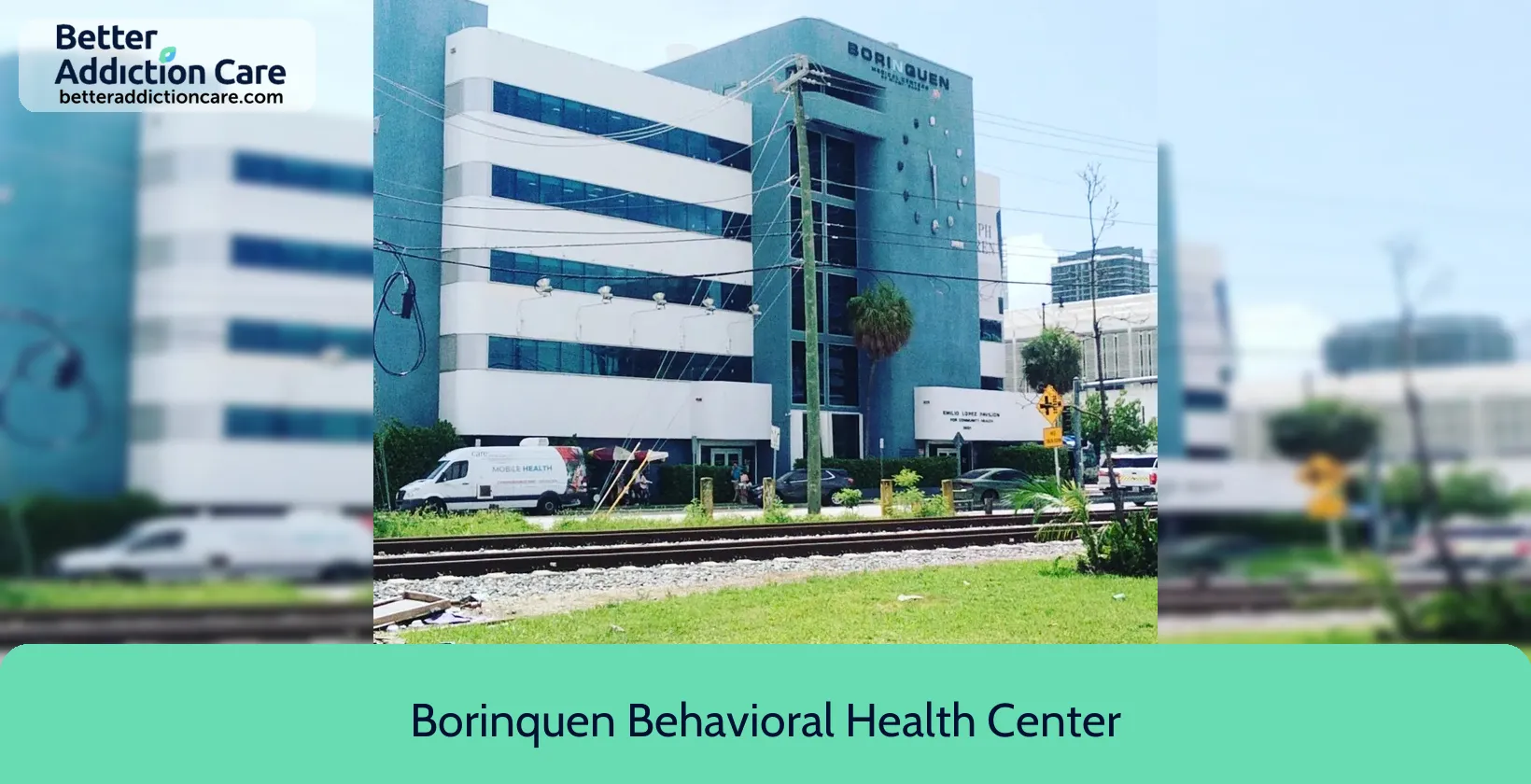
7.49
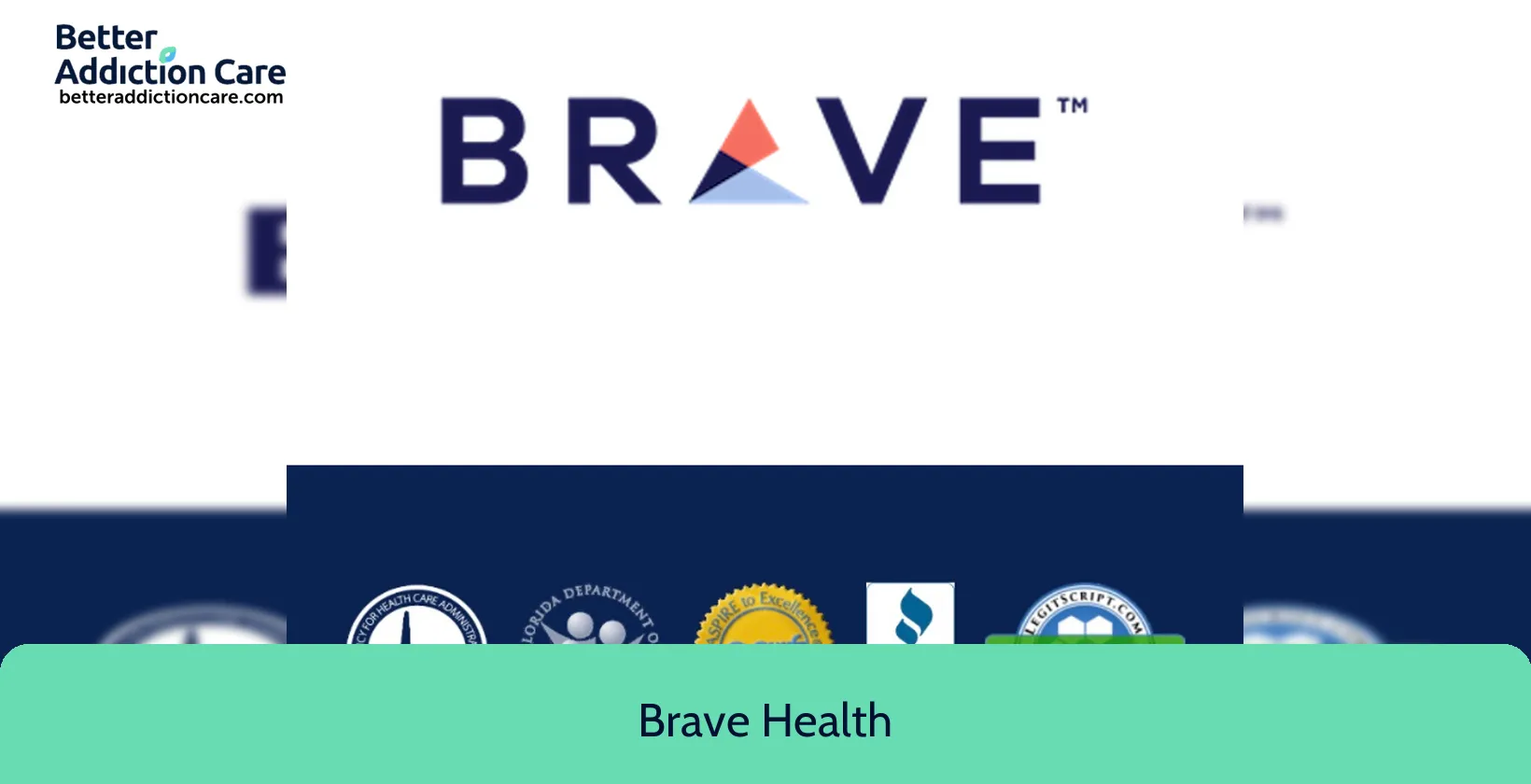
6.68
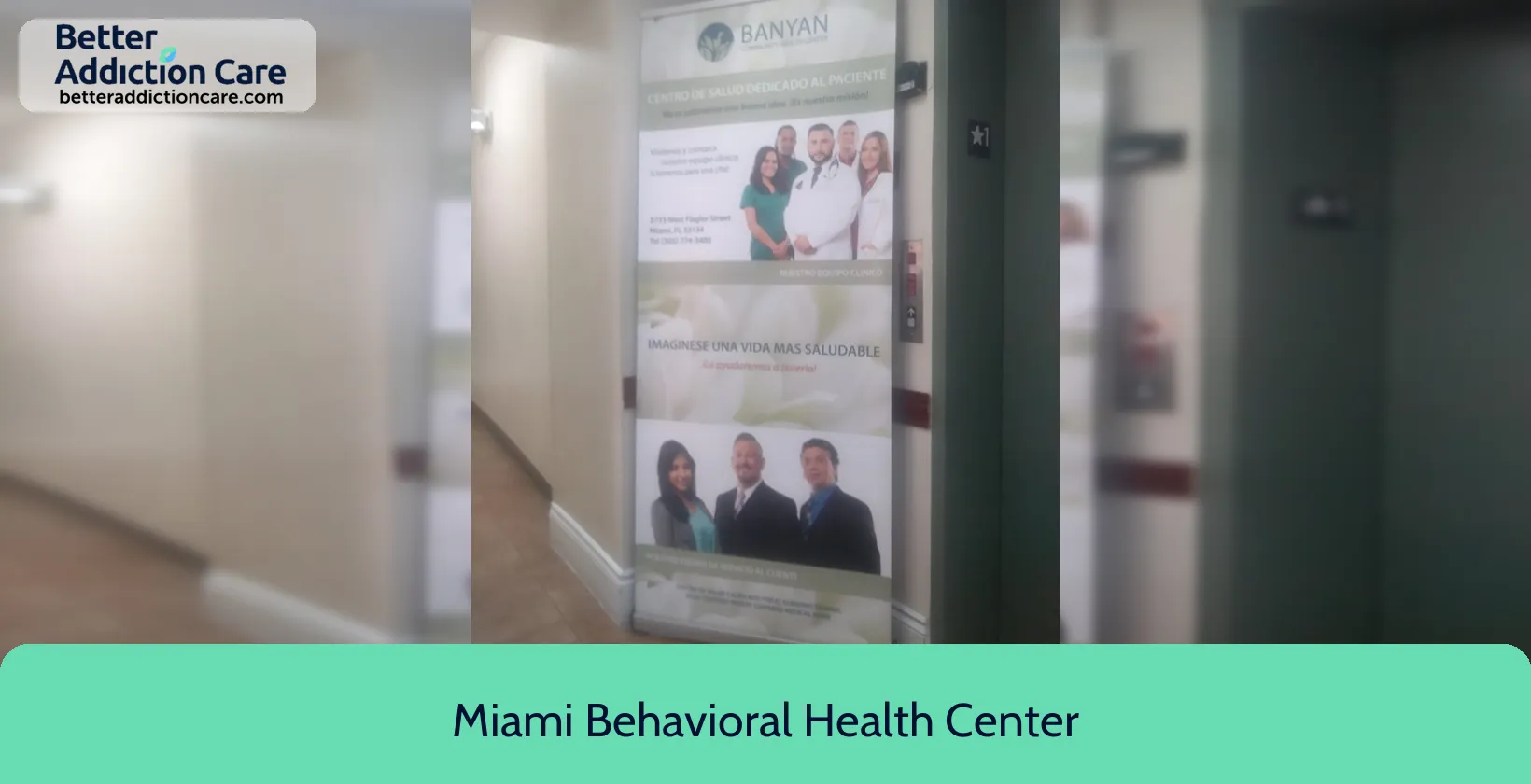
7.25
DISCLAIMER: The facility name, logo and brand are the property and registered trademarks of Miami Behavioral Health Center, and are being used for identification and informational purposes only. Use of these names, logos and brands shall not imply endorsement. BetterAddictionCare.com is not affiliated with or sponsored by Miami Behavioral Health Center.
